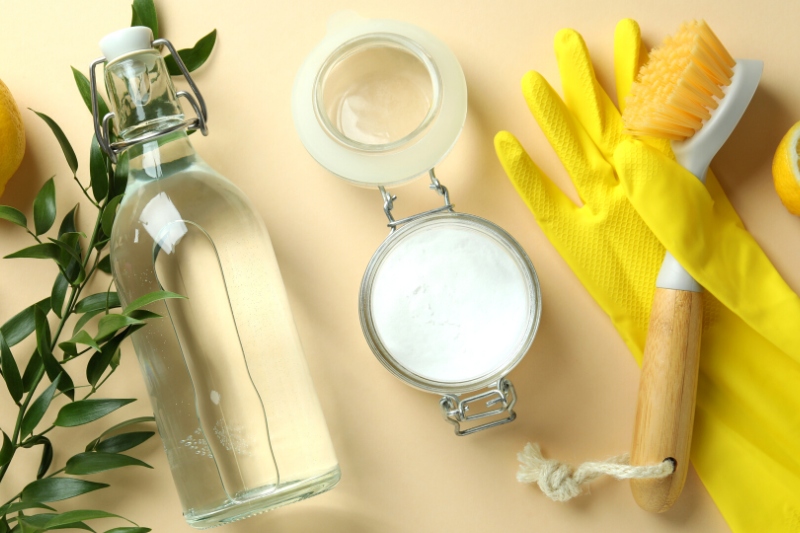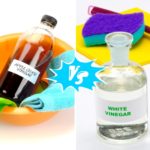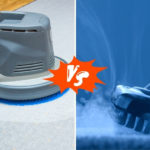When it comes to natural cleaning solutions, vinegar and citric acid are two of the most popular choices.
Both are highly acidic and are well-known for their effectiveness in cleaning various surfaces, objects, and appliances around the home. But which is more effective?
In this article, we compare citric acid vs. vinegar for cleaning based on various factors, including their ingredients, cleaning strength, smell, and more.
Read on for all you need to know to make an informed decision about which solution is right for you. We’ll look at how they compare in ingredients, cleaning strenght, smell, cost, lifespan and uses.
1. Ingredients & Production
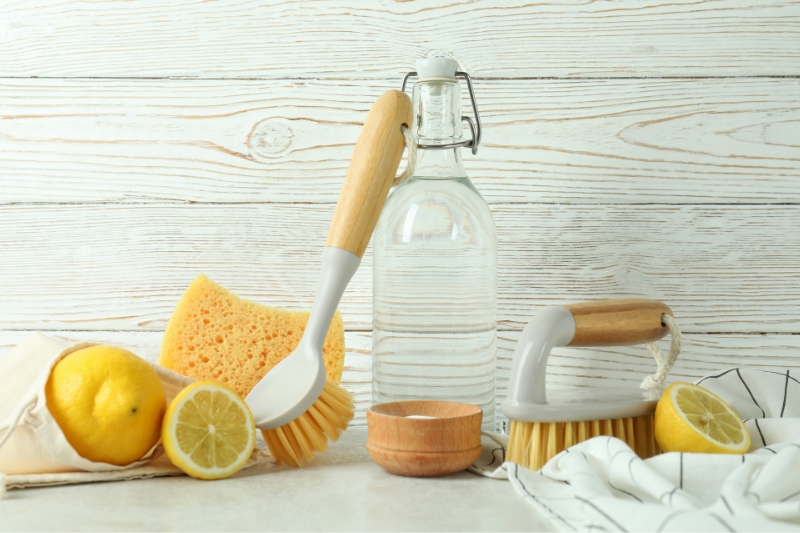
Citric acid occurs naturally in citrus fruits like oranges, lemons and limes, all of which can be used for cleaning.
Typically, the juice is squeezed from these fruits and used to clean surfaces around your home, but you can also buy bottles of juice that do the job.
The kind of citric acid used for cleaning can also be produced commercially through fermentation.
During the process, black mould is used to break down a sugar source until it forms citric acid. However, this manufactured citric acid can contain traces of black mould, which could trigger allergies in some people.
Like commercially produced citric acid, vinegar is also made through a fermentation process. However, acetic acid bacteria are used to break down alcohol rather than black mould.
The type of alcohol used in the fermentation process determines the type of vinegar produced. For example, malted barley produces malt vinegar, apples make cider vinegar, and industrial alcohol produces distilled white vinegar. The latter is the kind most commonly used in cleaning.
2. Cleaning Strength
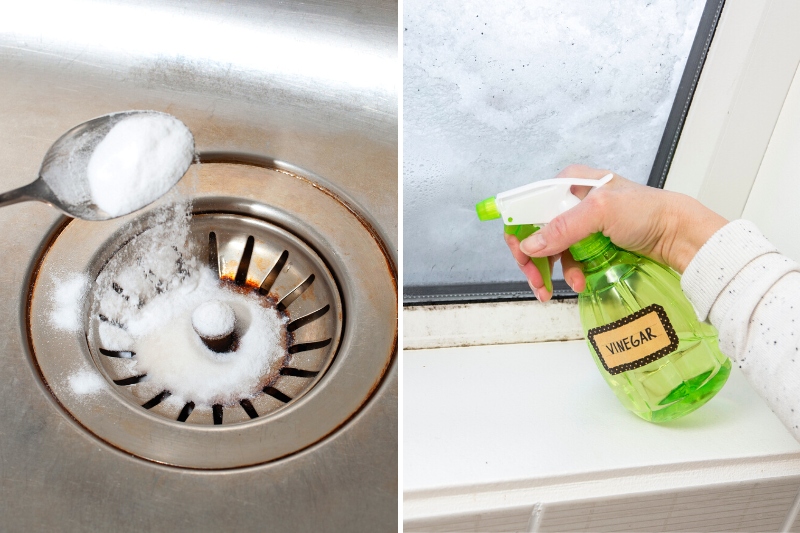
When it comes to cleaning strength, vinegar is generally more potent than citric acid. This is because vinegar is highly acidic, with a pH of around 2 to 3. Unfortunately, this also means that vinegar cannot be used on certain surfaces, including marble and wood, as it poses a risk of damage.
In comparison, citric acid falls somewhere between pH 3 and 6, making it a much milder cleaning solution.
It can also cause damage to some surfaces, but this is much less likely due to the reduced strength of the cleaner.
Therefore, both types of natural cleaners can be beneficial depending on the surfaces or objects you’re cleaning.
3. Smell
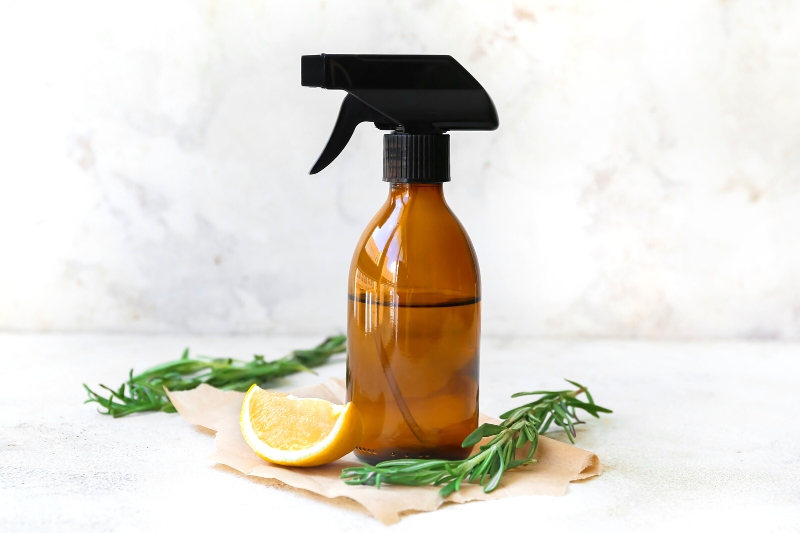
If you’re sensitive to certain smells, then citric acid is your best choice for a household cleaner.
Natural sources will leave behind a mild citrus fragrance, while manufactured citric acid tends to be odourless. This means it can be combined with your favourite essential oil to create a pleasant scent.
On the other hand, vinegar has a sour, acidic odour that many people find highly unpleasant. This smell is much more pungent than that of citric acid and tends to linger for longer periods of time.
However, this odour is often preferred to the smell of chemical cleaning products and can also be mixed with essential oils to reduce the acidity of the fragrance.
4. Cost
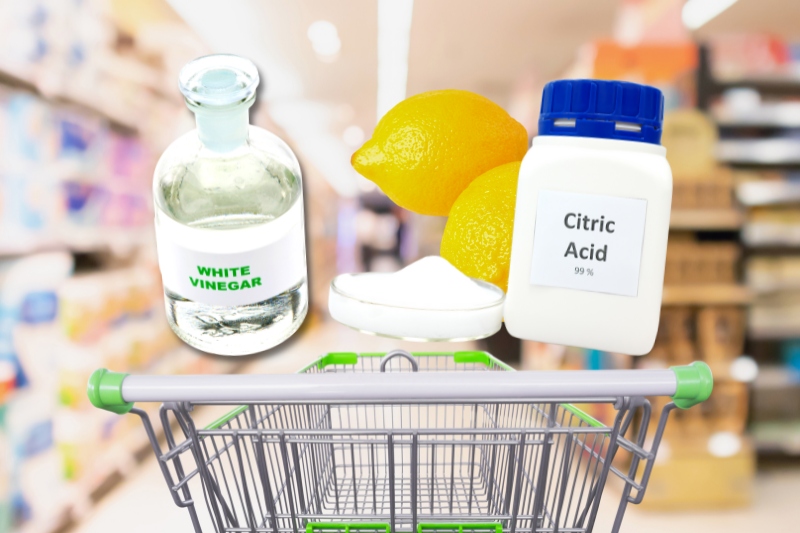
The cost of citric acid varies greatly depending on the type you want and where you buy it from.
The cheapest option is to buy an individual lemon or lime (roughly 30p each), but a bottle of fruit juice will typically be more cost-effective if you plan to use the product regularly. For example, most supermarkets have 250 ml bottles of lemon juice that are as little as 75p.
Your other option when frequently using citric acid for cleaning is to buy manufactured citric acid. This is generally the most expensive type to buy, with 250g of powder costing around £5 a box.
This being said, vinegar is usually the most cost-effective option overall. Small bottles of vinegar can be purchased from all major supermarkets for under a pound, and online retailers offer a variety of large spray bottles for just a few quid.
5. Lifespan
Both manufactured citric acid and vinegar have a long shelf life and can be stored for an extended period without losing their cleaning ability.
When stored correctly, they will both last up to three years, after which they will start to lose their acidity.
Unfortunately, natural citric acid from fresh fruit has a much shorter lifespan. Even if fresh citrus fruits are kept in the fridge, they only last up to two weeks.
Bottled lemon juice is slightly better, lasting up to six months when opened. However, it’s probably not the best option unless you know you’ll use it often in your cleaning routine.
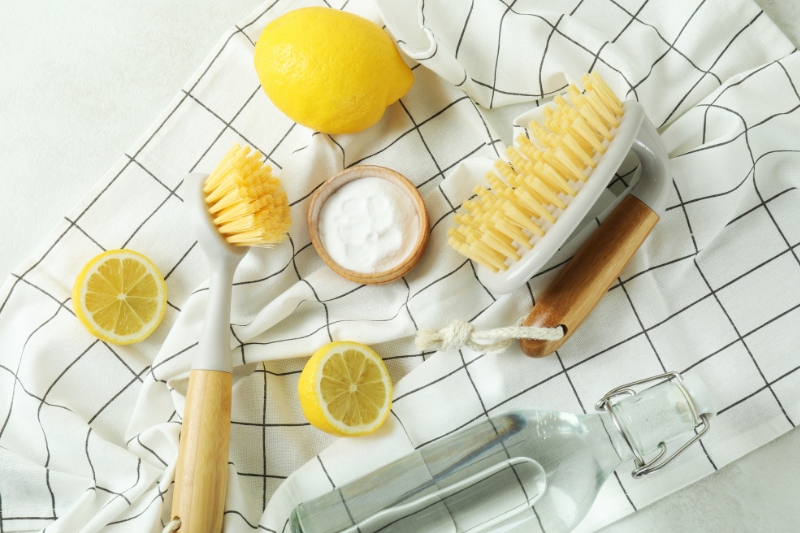
6. Common Uses
Both citric acid and vinegar can be used for various household chores. Although they aren’t effective at some tasks, together, they usually cover all of the cleaning that is needed in your home.
Below is a list of some of the most common uses for each cleaner.
Uses for citric acid:
- Alternative to dishwasher rinse aid
- Treating limescale
- Cleaning the toilet bowl
- Cleaning grout
- Cleaning the oven
- Cleaning windows and mirrors
Uses for vinegar:
- Removing odours and stains from clothing
- Cleaning the dishwasher
- Cleaning the microwave
- Cleaning showers and baths
- Cleaning worktops (avoid marble and granite)
- Descaling the kettle
Can You Mix Citric Acid and Vinegar?
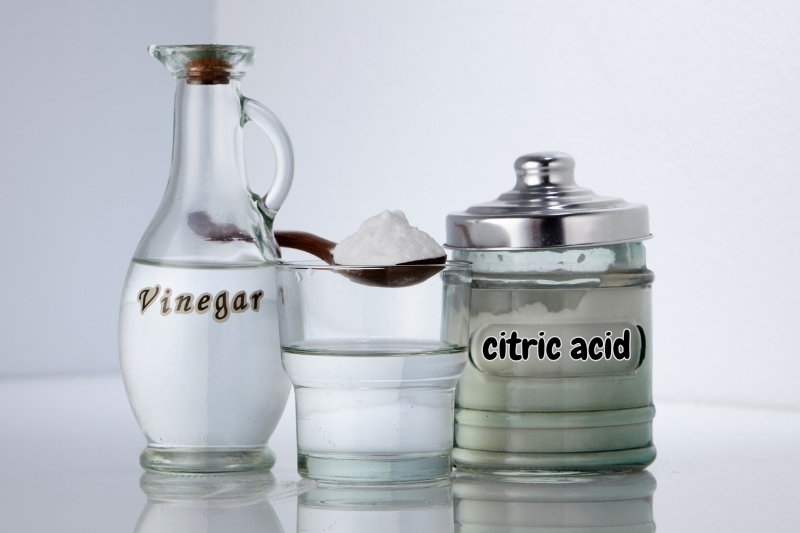
A common question asked when comparing citric acid vs vinegar is whether the two liquids can be mixed.
In theory, this should result in a cleaning solution that takes on qualities of both starting products—the added strength and cost-effectiveness of vinegar, yet the pleasant smelling and gentler abrasiveness of citric acid.
Indeed, citric acid and vinegar can be combined to create a versatile cleaning solution. When using natural citric acid, the fruity fragrance can even help mask the sour odour of the vinegar so that your home is left smelling clean and fresh.
Should I Use Citric Acid or Vinegar for Cleaning?
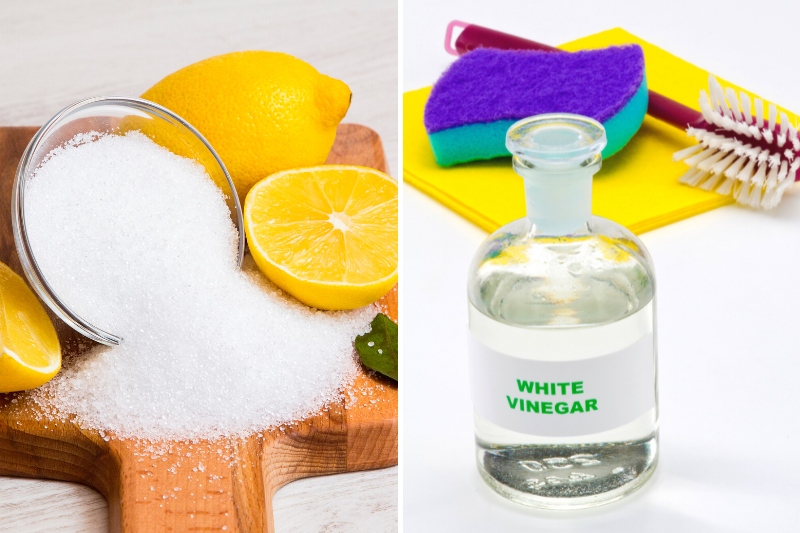
Overall, it is clear that citric acid and vinegar are both highly effective cleaners that can be used for a wide variety of household chores.
Both have their strengths and weaknesses, so the best choice is entirely dependent on your specific needs and preferences.
Vinegar is typically the stronger option of the two, so it may be best if you are in need of a slightly deeper clean.
It is also more cost-effective but has a pungent, sour smell that will linger around your home and could cause damage to certain surfaces.
On the other hand, citric acid is more expensive when buying in bulk and is a slightly milder cleaner.
However, it is safe to use on most surfaces and won’t leave you with an unpleasant acidic smell. Remember, you can always combine the two ingredients to create your own cleaning solution that has most of the advantages of both products.
No matter which option you go for, bear in mind that neither citric acid nor vinegar will remove 100% of the bacteria in your home.
If you need to have a particularly deep clean or are working with a damage-prone surface, we suggest going for a tried and tested commercial cleaner instead.

Hannah has a passion for cleaning. She worked her way around Australia by cleaning hostels in exchange for free accommodation and used her cleaning skills to bag a job as a chalet host for a luxury ski company in France.
